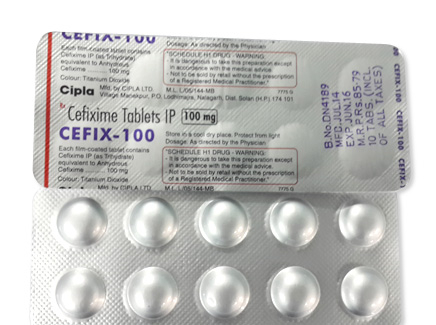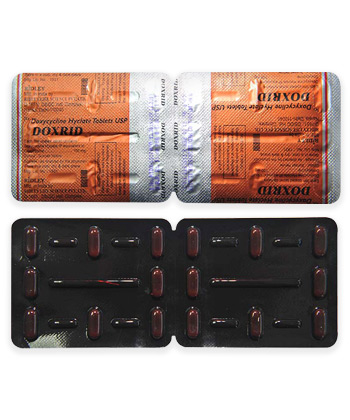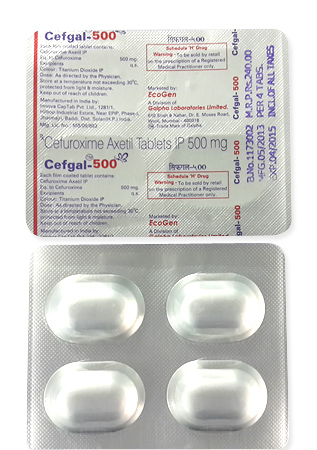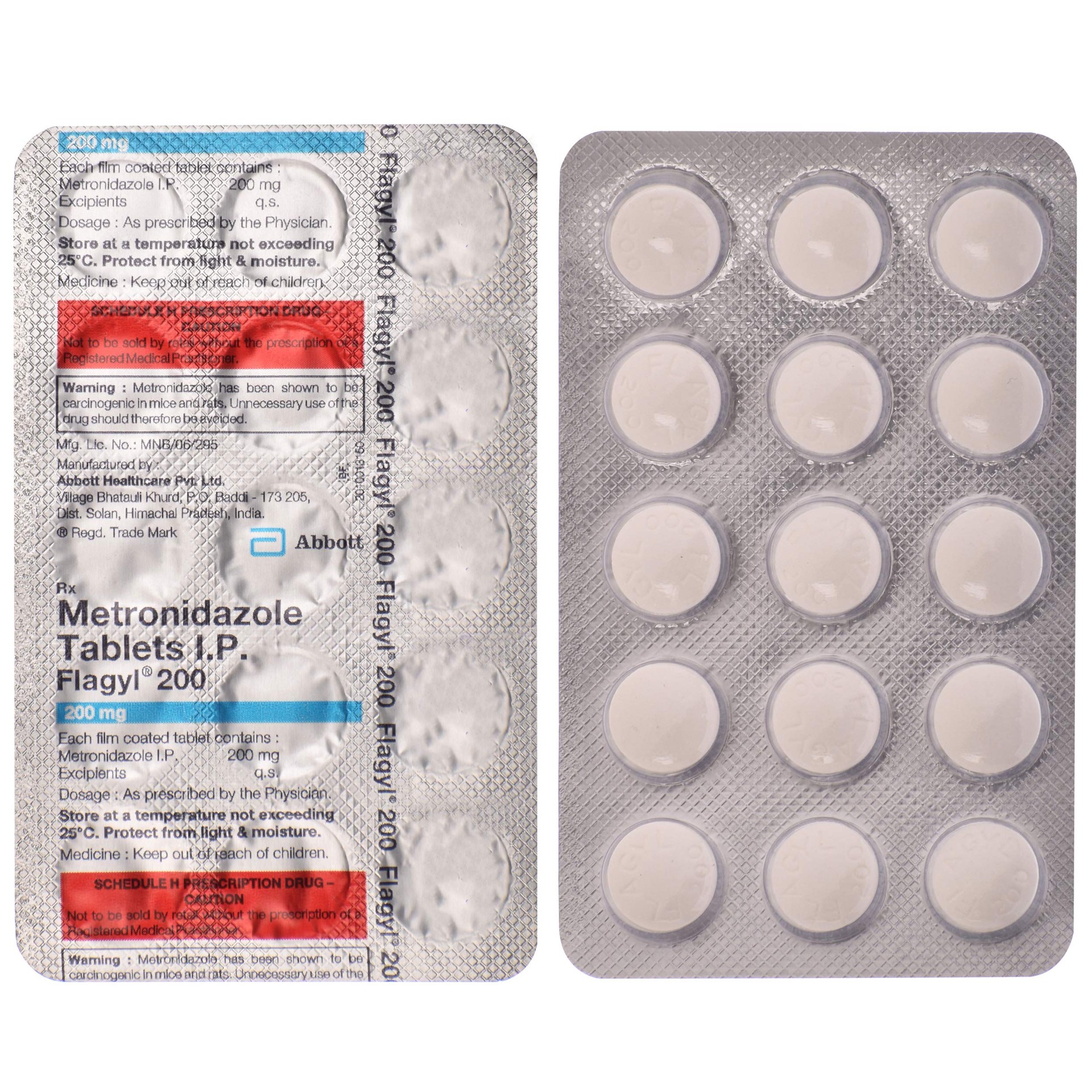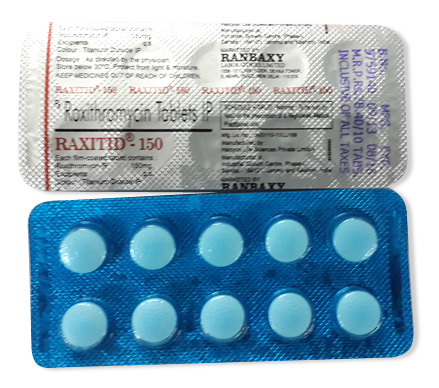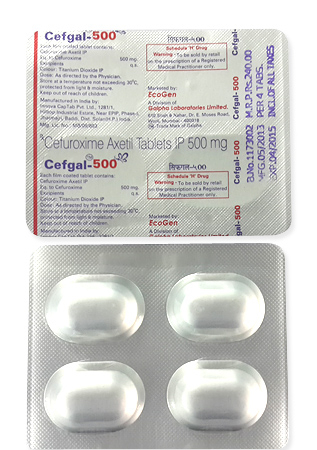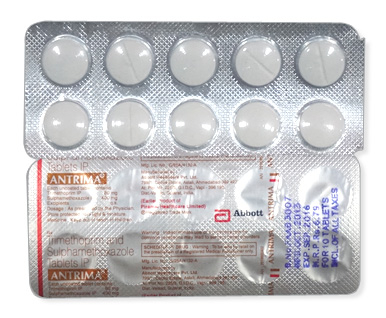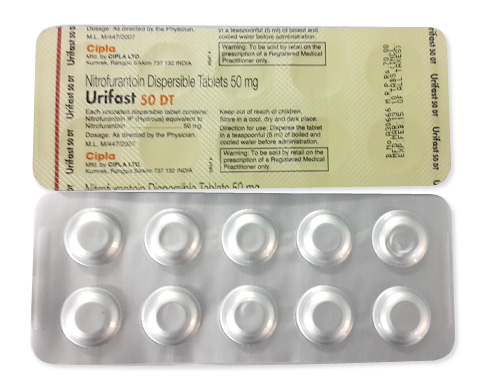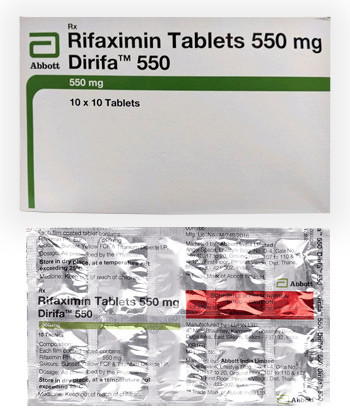
Xifaxan
- In our pharmacy, you can buy Xifaxan without a prescription, with delivery in 5–14 days. Discreet and anonymous packaging.
- Xifaxan is used to treat travelers’ diarrhea caused by E. coli, irritable bowel syndrome with diarrhea (IBS-D), and hepatic encephalopathy. It works as a gastrointestinal antibiotic that inhibits bacterial RNA synthesis.
- The usual dosage is 200mg three times daily for travelers’ diarrhea (3 days), 550mg three times daily for IBS-D (14 days), or 550mg twice daily for hepatic encephalopathy.
- The form of administration is oral tablet.
- It starts working within hours of the first dose, with symptom improvement typically within 24 hours.
- The duration of action requires multiple daily doses due to intestinal clearance, maintaining effectiveness during treatment regimens.
- Avoid alcohol consumption.
- The most common side effects include nausea, headache, dizziness, abdominal pain, and fatigue.
- Would you like to try Xifaxan without a prescription?
Basic Xifaxan Information
| Attribute | Details |
|---|---|
| INN (International Nonproprietary Name) | Rifaximin |
| Brand names in Australia | Xifaxan (primary brand) |
| ATC Code | A07AA11 (intestinal antiinfectives) |
| Forms & Dosages | Film-coated tablets: 200mg and 550mg |
| Manufacturers in Australia | Salix Pharmaceuticals (Bausch Health subsidiary) |
| TGA registration status | Registered; verify current ARTG listings |
| Legal classification | Prescription Only (Schedule 4) |
The gut-specific antibiotic rifaximin works locally with minimal absorption, primarily prescribed for travelers' diarrhea and liver-related conditions. Different from global markets, only tablets are available locally - no oral suspensions. Always confirm current TGA registration through the official database before prescribing or dispensing.
Regulatory Status and Requirements
Australian patients require a prescription for Xifaxan, consistent with requirements in the US and EU. The TGA specifically approves rifaximin for travelers' diarrhea caused by E. coli and as ongoing management for hepatic encephalopathy in adults. Off-label use for IBS-D occurs under specialist guidance, though it lacks formal TGA approval for this purpose. Pregnancy classification sits at Category B3, indicating risk cannot be ruled out - use requires careful benefit-risk evaluation. Children under 12 should not take rifaximin due to unestablished safety data. Tablet storage needs protection from moisture at standard room temperatures between 15–30°C.
How Rifaximin Functions in the Body
Rifaximin inhibits bacterial RNA synthesis directly in the gastrointestinal tract with less than 0.4% systemic absorption. This localized action allows rapid relief of diarrhea symptoms, typically within 24 hours of starting treatment. For hepatic encephalopathy, noticeable mental state improvement often occurs within 3–7 days. Minimal interaction risk exists as rifaximin doesn't significantly affect the CYP3A4 enzyme system. However, monitor coagulation status if administered with warfarin due to scattered case reports of INR changes. Despite popular concern, alcohol doesn't reduce effectiveness though may worsen dehydration in diarrhea cases.
Approved and Off-Label Applications
Three main conditions drive rifaximin prescriptions in Australia:
- Travelers' diarrhea: 200mg three times daily for three days
- Hepatic encephalopathy: Long-term 550mg twice daily dosing
- IBS-D: Two-week courses of 550mg three times daily (off-label)
Limited evidence supports off-label use for recurrent C. difficile or small intestinal bacterial overgrowth (SIBO). Pediatric diarrhea cases under 12 years remain contraindicated. For elderly patients, no dose adjustments are typically needed, but avoid during pregnancy and breastfeeding unless critical and supervised. Rifaximin's effectiveness against bloody diarrhea or fever-associated infections is unproven and potentially harmful.
Dosage Protocols and Special Cases
| Condition | Dosing Regimen | Duration |
|---|---|---|
| Travelers' diarrhea | 200mg three times daily | 3 days |
| IBS-D | 550mg three times daily | 14 days |
| Hepatic encephalopathy | 550mg twice daily | Continuous |
Kidney impairment rarely requires dosing changes but exercise caution in severe liver disease (Child-Pugh C). If missing a dose, skip if near the next scheduled dose. Overdoses require supportive care as no specific antidote exists - activated charcoal may help if taken soon after ingestion. For hepatic encephalopathy management, combining rifaximin with lactulose often enhances adherence and treatment success. Tablets should be swallowed whole without splitting or crushing.
Contraindications and High-Risk Groups
Xifaxan has critical safety restrictions requiring medical review. Absolute contraindications include any history of rifamycin antibiotic allergy (like rifampicin) due to cross-reactivity risks. It should never be used with bloody or feverish diarrhea - warned the Therapeutic Goods Administration - as this may signal infections requiring different treatments.
Special precautions apply to specific groups:
- Liver impairment: Caution advised in severe hepatic dysfunction (Child-Pugh C) as ammonia monitoring may be required despite low absorption
- Inflammatory bowel disease: Higher risk of Clostridium difficile recurrence warrants careful consideration
- Packaging sensitivities: Tablet coatings contain polyethylene glycol; notify pharmacists of plastic allergies
Pregnancy considerations follow the B3 category: use prohibited unless benefits strongly outweigh potential risks due to limited human studies. Breastfeeding requires medical consultation as excretion data remains insufficient. Australian guidelines contraindicate prescribing for children under 12 completely.
Side Effects and Adverse Reactions
Most reactions to Xifaxan fall into manageable categories, though rare serious events require immediate attention:
| Frequency | Side Effects | Severity | Management |
|---|---|---|---|
| Common (5-15%) | Nausea, headache, gas, bloating | Mild | Often resolve; take with food |
| Rare (1-3%) | Rash, dizziness, fatigue | Moderate | Medical review recommended |
| Very rare (<0.1%) | Angioedema, severe allergy | Serious | Emergency care required urgently |
Important clarifications: Weight gain isn't established as an Australian-reported side effect of rifaximin. Hepatic encephalopathy patients should note each 550mg tablet contains 273mg sodium - an important consideration for those with fluid restrictions. Early dialogue with healthcare teams helps manage uncommon dizziness occurrences.
Patient Experiences and Adherence Insights
Australian user reports indicate significant symptom relief patterns. For irritable bowel syndrome sufferers (IBS-D), 60-70% experience measurable improvement in diarrhea and abdominal pain based on Drugs.com data, though individual responses vary. Many note benefits within the first 48 hours, with others requiring multiple treatment courses.
Common adherence barriers emerge:
- Hepatic encephalopathy patients: Struggle with twice-daily scheduling long-term, particularly comorbid elderly patients
- Cost obstacles: Unsubsidised pricing affects therapy continuation despite symptom reduction
Therapeutic Goods Administration alerts highlight recurring prescription-sharing concerns observed in Australian forums, particularly travellers self-medicating family members with leftover tablets - an unsafe practice due to contraindication risks and PBS restrictions.
Treatment Alternatives and Cost Comparison
Alternatives to Xifaxan exist across approved indications:
| Condition | Alternative | Cost (AUD)* | Key Differences | PBS Status |
|---|---|---|---|---|
| Travelers' diarrhea | Azithromycin | $12-22 | Systemic absorption; broader side effects | Restricted benefit |
| IBS-D | Eluxadoline | $60-85 | Higher nausea rates; pancreas warnings | Not listed |
| Hepatic Encephalopathy | Lactulose | $15-30 | Lower efficacy; frequent dosing and bloating | General benefit |
*Cost for standard treatment course unsubsidised
Recent GP surveys show significant preference (78%) for rifaximin over older hepatic encephalopathy options despite price differences, particularly appreciating its cleaner adverse event profile. Unsubsidised Xifaxan courses typically span $48-102, creating adherence hurdles versus PBS-covered options.
Australian Market Access and Pricing
Xifaxan has established widespread availability since national introduction. Major pharmacy chains like Chemist Warehouse and TerryWhite Chemmart maintain consistent 550mg blister pack stocks at nearly 90% of metropolitan outlets. Independent pharmacies generally require 24-hour ordering windows.
Consumers consistently encounter specific supply characteristics:
- All Australian stock arrives in foil blister packs (10, 42, or 60 tablets); bottle packaging isn't available
- Significant January-February demand surges occur as travellers prepare medication kits pre-summer holidays
Pricing sees moderate variability between retailers despite suggested RRP: metropolitan pharmacies typically charge $98-$102 for 42-tablet courses versus regional centres at $102-$110. Online thresholds require diagnosed prescriptions with PBS Authority approval checks before dispensing.
Research Updates and Future Outlook
Things change quickly in medicine, and Xifaxan is no exception. Right now, a major 2024 review of studies found that Xifaxan helps prevent symptom flare-ups in irritable bowel syndrome with diarrhoea, cutting relapse risks by about 27%. That's reassuring news for patients struggling with unpredictable IBS-D episodes. But another big shift is looming on the horizon: exclusive patent rights for original Xifaxan tablets expire between late 2025 and early 2028 across major markets including Australia.
What does this mean? Prepare for generic rifaximin products to enter Australian pharmacies soon. Initial suppliers will likely come from Indian and Asian manufacturers already producing versions, potentially lowering costs for consumers when scripts aren't PBS-subsidised. Research pipelines remain active too—Australian gastroenterology clinics currently recruit patients for Phase III studies using rifaximin for alcohol-related liver inflammation and pairing it with constipation therapies in IBS-C protocols.
Common Queries: Practical Patient Questions Answered
Travel and Lifestyle Factors
Travellers regularly ask: "Can I have whisky while taking Xifaxan for Bali belly?" My answer is clear: alcohol doesn't reduce the medicine's effectiveness against travellers' diarrhoea. However, mixing Xifaxan with spirits worsens dehydration which your body fights harder when unwell—avoid pairing them during treatment.
Addressing Safety Concerns
A widespread myth holds that rifaximin weakens overall immunity long term. That's inaccurate. Unlike systemic antibiotics flooding your entire system, rifaximin works locally within the gut without wiping out microbial diversity elsewhere—preserving defences while targeting intestinal issues.
Australian Access Considerations
A practical Medicare question I hear often: "Does my IBS-D Xifaxan script qualify for subsidy?" Unfortunately, only hepatic encephalopathy indications currently obtain PBS coverage here. For IBS-D treatment, expect private script costs around $99 per course unless hospital-prescribed under special schemes.
Guidelines for Proper Use
Using Xifaxan correctly ensures optimal results and safety. Follow these steps closely:
- Swallow tablets intact with water consistently timed whether fasted or with meals.
- Avoid antacids containing aluminium/magnesium within two hours of doses.
- Refrain from high-fat meals—they slow medication absorption considerably.
Safely store tablets protectively sealed against Australian humidity within cool, dry rooms—never inside cars or bathrooms where temperatures fluctuate. Critical warnings require vigilance: report any bloody stools immediately as antibiotics carry risks for rare bloody diarrheas. Monitor memory lapses and confusion spikes carefully for chronic hepatic encephalopathy patients.

